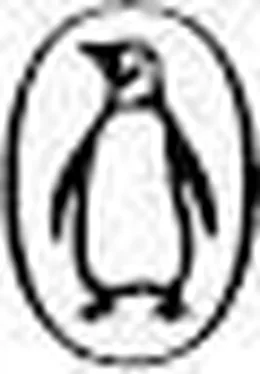Trevor, William - Children Of Dynmouth
Здесь есть возможность читать онлайн «Trevor, William - Children Of Dynmouth» весь текст электронной книги совершенно бесплатно (целиком полную версию без сокращений). В некоторых случаях можно слушать аудио, скачать через торрент в формате fb2 и присутствует краткое содержание. Год выпуска: 1976, Издательство: Penguin Publishing, Жанр: Старинная литература, на английском языке. Описание произведения, (предисловие) а так же отзывы посетителей доступны на портале библиотеки ЛибКат.
- Название:Children Of Dynmouth
- Автор:
- Издательство:Penguin Publishing
- Жанр:
- Год:1976
- ISBN:нет данных
- Рейтинг книги:4 / 5. Голосов: 1
-
Избранное:Добавить в избранное
- Отзывы:
-
Ваша оценка:
- 80
- 1
- 2
- 3
- 4
- 5
Children Of Dynmouth: краткое содержание, описание и аннотация
Предлагаем к чтению аннотацию, описание, краткое содержание или предисловие (зависит от того, что написал сам автор книги «Children Of Dynmouth»). Если вы не нашли необходимую информацию о книге — напишите в комментариях, мы постараемся отыскать её.
Children Of Dynmouth — читать онлайн бесплатно полную книгу (весь текст) целиком
Ниже представлен текст книги, разбитый по страницам. Система сохранения места последней прочитанной страницы, позволяет с удобством читать онлайн бесплатно книгу «Children Of Dynmouth», без необходимости каждый раз заново искать на чём Вы остановились. Поставьте закладку, и сможете в любой момент перейти на страницу, на которой закончили чтение.
Интервал:
Закладка:
‘You’re bloody mad,’ Mr Plant said, staring at the boy.
‘There’s an old bath down in Swines’ yard. I asked the foreman about it. Only we’d need your van to convey it, sir.’
‘Van? Who’d need the van? What’re you on about?’
‘Your little brown van, Mr Plant. If we could erect the bath up in the marquee on the Saturday morning. We could cover it with a sheet so’s nobody’d guess. We can get hold of a wedding-dress, no problem at all.’
‘You’re a bloody nutcase, son.’
Timothy shook his head. He sucked on his fruit gum and said he wasn’t a nutcase. All he wanted to do, he explained, was to go in for the Spot the Talent competition.
Mr Plant did not reply. He turned and began to walk back towards the town. His dog had gone to sniff a lamp-post. He called him to heel.
‘Shall I do you a woman’s voice?’ Timothy Gedge suggested.
Mr Plant wondered if she’d dropped the boy when he was a baby. You heard of that kind of thing, a kid’s head striking the edge of something when the kid was a couple of months old and the kid never being normal. Then, as Mrs Abigail had, he recalled that dressing up and putting on shows was an activity that was popular with children. He’d often sat with his wife watching his own two boys and two girls enacting a playlet they’d made up by themselves, some fantasy set in a country house or a railway station. The Gedge boy seemed to be intent on something like that only with a gruesome flavour, murders taking place in a bath. Sick they called it nowadays, and sick it most certainly was. In his entire life, he estimated, he’d never heard anything like it.
‘It’s in the yard on the left, Mr Plant, behind the timber sheds. I told the foreman you’d be coming for it. Today or whenever you had a minute.’
‘You did what, son?’ His voice was quiet, with a threat in it. He was staring at Timothy Gedge again. ‘No one’s going getting baths out of Swines’ yard. Today or any other time.’
‘I’m anxious for your assistance, Mr Plant.’
‘Hop it, son. Go on now.’
‘I said some time, Mr Plant. I didn’t say today specially. The Saturday morning, Easter Saturday –’
‘You’re up the chute, son.’
For the first time Timothy noticed that there was red hair growing out of the publican’s ears and nose. The hair was coarse and wiry, like the hair on his head. Women the age of his mother couldn’t pick and choose, he supposed. Nor could the women who let Plant get on the job in the Ladies in the Artilleryman’s car-park. He’d followed him in once and had listened to the sound of clothes being removed, and whispering. On another occasion, when he was watching A Man Called Ironside, he’d heard whispering and knew that his mother had taken Plant into her bedroom. He’d left the television on and gone to listen at the bedroom door. He’d looked through the key-hole and seen his mother without a stitch left on her, taking off the man’s socks. He reminded him now of this occasion, and of the occasion in the middle of the night.
‘You bloody young pup!’ Mr Plant exclaimed hotly.
‘All I mean is, we’ll keep the secret, Mr Plant. We have the secret between us, sir. I wouldn’t open my mouth to Mrs Plant.’
‘You bet your bloody life you wouldn’t. If you opened your bloody mouth you’d get a hiding that would cripple you.’
‘I’m saying I wouldn’t, Mr Plant. I’d never do a thing like that, sir. So if we could fix it for the Saturday a.m. and if you could get the bath in your little van, and don’t tell a soul so’s it’s a surprise. I’ve got the whole thing planned, Mr Plant –’
‘Well, get it unplanned if you don’t want to end up in a borstal.’
They had ceased to walk. Timothy listened, still sucking his fruit gum, while Mr Plant told him that he’d never heard anything as stupid or as pathetic in his life. No one was going to watch the kind of stuff that had been described to him, in a marquee or anywhere else. He spoke of a borstal again, he denied that he was an immoral man. He denied emphatically that the scene during A Man Called Ironside had ever taken place; or if it had, it had been some other man in the bedroom. On the night Timothy had seen him in a shirt he had come round to the Cornerways flat because Timothy’s mother had wanted his advice about a notice she’d had from the council regarding rent. He’d caught his trousers on a nail and had had to remove them in order that she could repair them. There was nothing wrong in that beyond what a dirty mind would make of it. ‘You want to be careful of that, son. Keep a clean nose on your face.’
Timothy mentioned the Ladies in the car-park, adding that he had repeatedly observed Mr Plant emerging a few minutes after a woman. He mentioned the time he’d heard clothes being removed, and the whispering. Mr Plant said he was mistaken. Then, suddenly, he laughed. He told Timothy not to poke about in things he didn’t understand. If he’d emerged from the toilet, he said, then maybe he’d been in there fixing a ball-cock, and there was no crime in removing an article of clothing in a toilet. Still laughing, he said it could happen to anyone, a pair of trousers catching on a nail.
‘You mind your own bloody business, son,’ he said, not amused any more, ‘unless you want a fat lip.’ He lifted a large hand in the air and held it up in front of Timothy Gedge’s face. He told him to look at it and to remember it. It would thump him to a pulp. It would thump the living daylights out of him if he ever again dared to open his mouth as he had just now, to anyone.
‘You don’t get the picture, Mr Plant –’
‘I bloody do, mate. You’ll be left for dead, son, and when they get you to your feet you’ll do five and a half years in a borstal. All right then?’
Mr Plant walked away with his dog hobbling beside him. Timothy did not follow him. He stood on the promenade, watching the publican and his three-legged pet, bewildered by the man.
‘Ashes to ashes,’ intoned Quentin Featherston in the churchyard of St Simon and St Jude’s. A small piece of clay, dislodged from the side of the grave, clattered on the brash new wood of a coffin containing the remains of an aged fisherman called Joseph Rine. Attired in black, the elderly wife of the fisherman wept. A sister, bent with rheumatics, wept also. The old man’s son considered that his father had had a good innings.
Quentin shook hands with them at the end of the service and walked to the church with the sexton. Quietly, Mr Peniket remarked that the Rines were a good family, even if they didn’t go to church much. He’d had to order more coke, he added, although he’d hoped not to have to do so until the autumn. He hoped that was all right.
‘Yes, yes, of course, Mr Peniket.’
‘Better to be safe, sir.’
Mr Peniket was a conscientious bachelor of late middle age, devoted to St Simon and St Jude’s. He polished the pews and the brass and personally washed the tiles. He was in no way hostile to Quentin, but he often spoke of the time when old Canon Flewett had been the rector, when many more people had come to church and church life had thrived. He was aware that times had changed, yet somehow when he spoke about Quentin’s predecessor Quentin always felt that he believed that if old Canon Flewett were still in charge the change would not have been so drastic.
‘I’ll just tidy around,’ the sexton said now, and Quentin nodded, stepping into the vestry.
‘Really good that was,’ Timothy Gedge said, entering the vestry a minute or so later with his carrier-bag. ‘Really nicely done, Mr Feather.’
Quentin softly sighed. The boy had recently developed this habit of walking into the vestry without knocking, usually to announce that a funeral service had been nicely conducted.
Читать дальшеИнтервал:
Закладка:
Похожие книги на «Children Of Dynmouth»
Представляем Вашему вниманию похожие книги на «Children Of Dynmouth» списком для выбора. Мы отобрали схожую по названию и смыслу литературу в надежде предоставить читателям больше вариантов отыскать новые, интересные, ещё непрочитанные произведения.
Обсуждение, отзывы о книге «Children Of Dynmouth» и просто собственные мнения читателей. Оставьте ваши комментарии, напишите, что Вы думаете о произведении, его смысле или главных героях. Укажите что конкретно понравилось, а что нет, и почему Вы так считаете.










